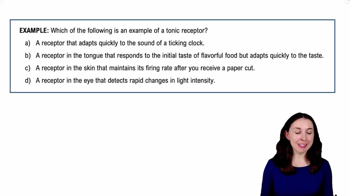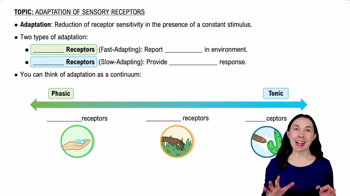Mark the following statements as true or false. If a statement is false, correct it to make a true statement.
c. A flexion reflex is a monosynaptic reflex with only one synapse in the spinal cord.
 Verified step by step guidance
Verified step by step guidance



Mark the following statements as true or false. If a statement is false, correct it to make a true statement.
c. A flexion reflex is a monosynaptic reflex with only one synapse in the spinal cord.
Which two cranial nerves mediate the gag reflex?
Fill in the blanks: A spinal nerve divides into a(n)_____ that serves the anterior side of the body and the limbs and a(n)_____that serves the posterior side of the body.
Jason presents for evaluation after a severe shoulder injury during which his entire brachial plexus suffered damage. What effects would you expect Jason to have from this injury?
Define each of the following terms in your own words, using 20 or fewer words.
a. Peripheral nerve
Explain why you lose both motor and sensory function of a part of your body when a spinal nerve is numbed with anesthetic agents.